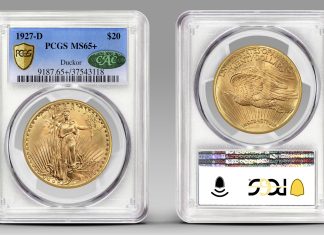 The global investment audiences were treated to quite a performance this morning by a handful of central banks which reached the conclusion that certain strings had to be pushed while others needed to be played. A simple official statement of the CCBA (Coordinated Central Bank Action) contained the important kernel as follows:
The global investment audiences were treated to quite a performance this morning by a handful of central banks which reached the conclusion that certain strings had to be pushed while others needed to be played. A simple official statement of the CCBA (Coordinated Central Bank Action) contained the important kernel as follows:
"The Bank of Canada, the Bank of England, the Bank of Japan, the European Central Bank, the Federal Reserve, and the Swiss National Bank are today announcing coordinated actions to enhance their capacity to provide liquidity support to the global financial system. The purpose of these actions is to ease strains in financial markets and thereby mitigate the effects of such strains on the supply of credit to households and businesses and so help foster economic activity."
In effect, the five central banks mentioned above lowered the cost of dollar swaps and extended existing temporary US dollar swap lines with others in the quintet in order to ease the strains that were increasingly threatening to turn the global symphony into something that sounds like a John Cage composition. Nobody, it seems, among central bankers anyway, wants to hear the sounds of silence.
Silent factories and silent markets might make for some very vocal rank-and-file audiences out there later, and they might throw more than just tomatoes at government buildings if conditions deteriorate far enough.
Arguably, the move by the string quintet this morning could be interpreted as a substitute for the lack of action by the ECB and/or Germany and/or the IMF as regards Europe. While debates about the scope and size and structure of the EU and such continued in endless fashion, conditions had decayed sufficiently to result in last night’s warning (to Europe’s finance ministers) that Italy was at risk of becoming insolvent.
That, at least, is what Britani’s Guardian reported based on a confidential report it got a hold of. Said report indicated that without concrete action on the part of someone, the liquidity crisis in Europe stood a good chance of turning into a Lehman-like event. Europe’s finance ministers threw in the proverbial towel when they let it be known that they had fallen short of expanding the bailout fund and were looking to the IMF/ECB duo to pick up the lead. Europe’s leaders meet on December 9 to try to perhaps bring about changes in governance, changes which might then make it possible to allow for a larger role for the ECB going forward. Dr. Rumack would say:
"We just want to tell you all good luck. We’re all counting on you."
The coordinated central bank sortie does provide a stop-gap measure for the moment and it once again demonstrates that moneyticians — and not politicians– are in charge when it comes to matters perhaps more critical than even national security (one could call it: national insecurity). However, even now, all eyes remain on Germany and the ECB despite today’s turning of the spigots. Consider what Bloomberg’s Simon Nixon has to say on the delicate matter:
"But the ECB’s response to the crisis remains dependent on politics. The good news is that domestic German politics isn’t the decisive factor. The German government has made clear it respects the ECB’s independence and won’t tell it how it should interpret its price stability mandate. And while the Bundesbank has spoken publicly against wider intervention in the euro crisis, it only has two votes on the 23-person governing council. But like the German government, the ECB’s chief concern is moral hazard: it won’t intervene unless it sees a clear commitment from euro-zone leaders to adopt iron-clad new rules to ensure fiscal discipline. Euro-zone leaders are to meet on Dec. 9 to discuss governance reforms. The stakes couldn’t be higher."
Meanwhile, on the other side of a troubled planet, China’s central bank (effective Dec. 5) cut its reserve requirements on domestic banks by 50 basis points from the record 21.5% it had demanded up to this point in a bid to countervail the contraction the nation had begun to experience in the wake of the European debt debacle. Thus goes the concerted ‘give’ we observe this November morning across the planet. Consider it an early holiday gift courtesy of the official sector.
Add the Chinese central bank’s "solo" to the above overture, and you have a complete picture of today’s market programme; a soothing concert intended to bring stability, avert contractions, and lull worried investment audiences into at least a temporary calm. The beneficiaries of Wednesday’s "concerto grosso" (read: concerted, large-scale largesse) were not difficult to spot this morning: commodities, and equities applauded the performance and gave it a "standing" ovation as they rose to their feet in rapture.
The US dollar was sent to the backstage area for the time being as its recent turn on the stage was really more about generalized fear than a recognition of its innate ‘talents.’ It fell more than 1.1% on the trade-weighted index as a result of the official programme change. Crude oil, on the other hand, gained 1.6% and vaulted firmly above the century mark, while base metals — copper leading the charge-gained hefty percentage amid instant euphoria that the central bank action will stimulate growth and related demand. The orange metal rose 3.7% on the CCBA news.
This brings us to precious metals; they wasted no time in gaining value ground this morning either. The "Buy Everything!" syndrome is, today, clearly on display. As gold has been trading along the lines of what a risk asset normally displays as opposed to what a safe-haven one does, the spike seen today is unsurprising. Spot gold opened with a $15 sprint to the $1,730 per ounce level, while silver lagged significantly but still opened four cents higher and was quoted at the $31.96 bid. Ironically, the reading of the CFTC market positioning reports had shown that specs had substantially reduced their net-long bets in gold and silver just before this (CCBA) gift was sent to the commodities’ markets today. Confidence in the ability of most metals and oil had shown signs of being absent in the latest reporting period.
Platinum and palladium — especially the latter also benefited from the crunch-averting central bank offering and gained in values. The former rose $16 to the $1,551 mark while the latter vaulted $30 higher (5.13%!) besting the performance of the entire precious metals’ complex and most other assets this morning. What a solo!
If you think that that was a performance worth recording, then consider the one being heard in the US labor sector today. ADP reported a 206,000 private sector payrolls increase this month. That, dear critics, would make the addition to the ranks of the employed the best one since last December. Friday’s Labor Department statistics are now thought to possibly show a nonfarm payrolls gain on the order of 125,000 positions. Unemployment is not however expected to show much, if any, of a departure from the 9 percent level.
Ah, yes. As we go to print, we find that the Dow is up 329 points (3/26%). Want any further evidence of the contagiousness of "Buy Everything!" among speculators? You do not need any. Marketwatch titles it: "Central Bank Action Ignites Stocks."
Faites Vos Jeux!
Jon Nadler
Senior Metals Analyst — Kitco Metals
Jon Nadler
Senior Analyst
Kitco Metals Inc.
North America
Disclaimer: The views expressed in this article are those of the author and may not reflect those of Kitco Metals Inc. The author has made every effort to ensure accuracy of information provided; however, neither Kitco Metals Inc. nor the author can guarantee such accuracy. This article is strictly for informational purposes only. It is not a solicitation to make any exchange in precious metal products, commodities, securities or other financial instruments. Kitco Metals Inc. and the author of this article do not accept culpability for losses and/ or damages arising from the use of this publication.
www.kitco.com and www.kitco.cn
Blog: http://www.kitco.com/ind/index.html#nadler










